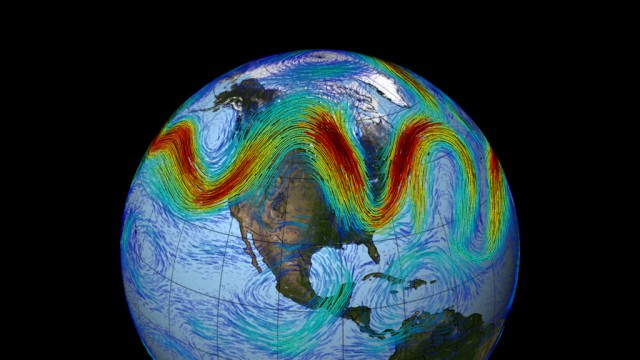Melting Arctic sea ice could be altering jet stream
Ars Technica » Scientific Method 2013-12-11

The rapidly warming Arctic isn’t noteworthy only for its own sake. Changes there affect the rest of the planet in a number of ways. Recently, there has been a lot of interest in whether the dwindling Arctic summer sea ice could be weirding the weather in the mid-latitudes.
There have been a number of recent summer extremes—Russia’s hellish summer in 2010, the drought in the US last summer, a very wet 2011 in Korea and Japan, plus a streak of soggy summers in the UK. There have been suggestions that lower summer sea ice in the Arctic could be gumming up the jet stream and contributing to these events, but some climate scientists aren’t so sure. A new study in Nature Climate Change brings more evidence to the table in support of the idea.
Qiuhong Tang and Xuejun Zhang, of the Chinese Academy of Sciences, and Jennifer Francis, of Rutgers, decided to look for patterns of atmospheric change correlated with the loss of Arctic summer sea ice and the decline of early summer snow cover. Using reanalyses, which generate global datasets based on all the available measurements, they examined how the lower, middle, and upper troposphere responded to variations in sea ice and snow cover from 1979 (the start of the satellite era) to 2012.
Read 9 remaining paragraphs | Comments




